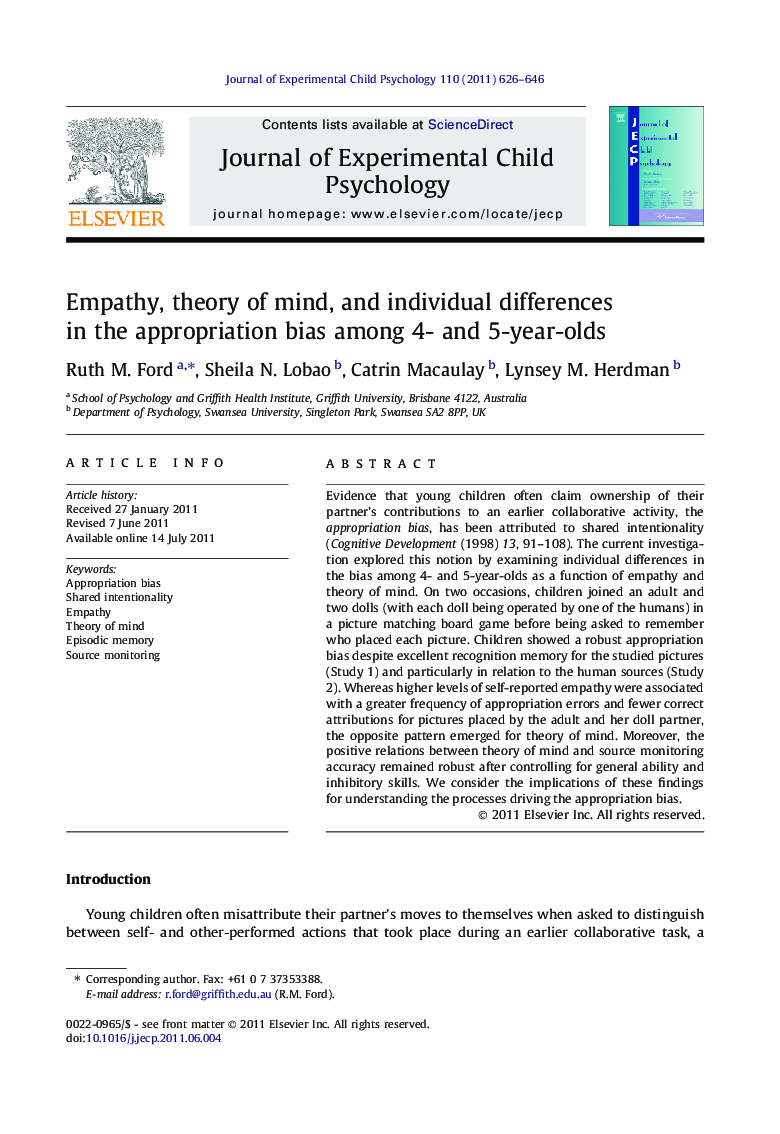| Article ID | Journal | Published Year | Pages | File Type |
|---|---|---|---|---|
| 918362 | Journal of Experimental Child Psychology | 2011 | 21 Pages |
Evidence that young children often claim ownership of their partner’s contributions to an earlier collaborative activity, the appropriation bias, has been attributed to shared intentionality (Cognitive Development (1998) 13, 91–108). The current investigation explored this notion by examining individual differences in the bias among 4- and 5-year-olds as a function of empathy and theory of mind. On two occasions, children joined an adult and two dolls (with each doll being operated by one of the humans) in a picture matching board game before being asked to remember who placed each picture. Children showed a robust appropriation bias despite excellent recognition memory for the studied pictures (Study 1) and particularly in relation to the human sources (Study 2). Whereas higher levels of self-reported empathy were associated with a greater frequency of appropriation errors and fewer correct attributions for pictures placed by the adult and her doll partner, the opposite pattern emerged for theory of mind. Moreover, the positive relations between theory of mind and source monitoring accuracy remained robust after controlling for general ability and inhibitory skills. We consider the implications of these findings for understanding the processes driving the appropriation bias.
► Two studies examined the predictors of memory appropriation errors in young children. ► Participants were asked to remember who did what following a collaborative activity. ► The frequency of appropriation errors was higher among more empathic children. ► Conversely, appropriation errors were linked negatively with theory of mind.
